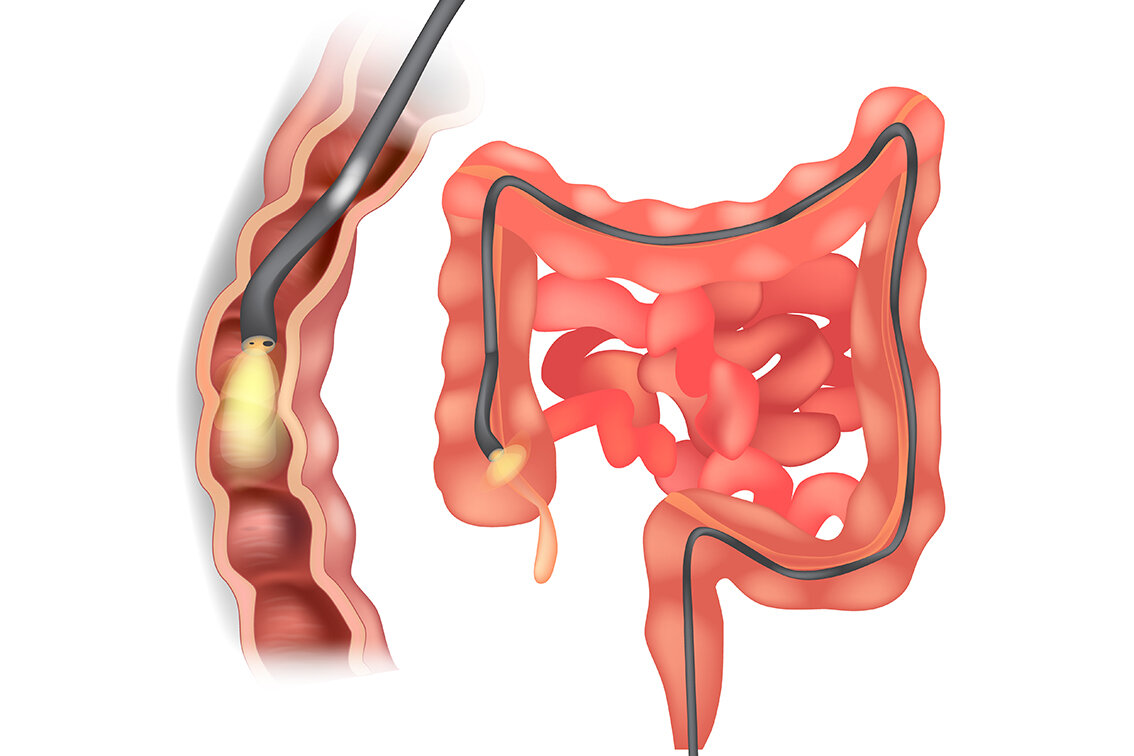Bowel Screening & Colonoscopy
A colonoscopy procedure is undertaken to detect inflamed bowel tissue and abnormal growths called ‘polyps’ and to look for early signs of bowel cancer.
What is a colonoscopy?
Colonoscopy is a technique used to examine the large bowel (colon and rectum) using a colonoscope (a flexible tube with a small camera attached).
The procedure is performed under sedation with an anaesthetist present. A bowel preparation is required prior to colonoscopy. Colonoscopy can detect bowel cancer and other bowel conditions such as polyps (small growths that may become bowel cancers), diverticular disease and inflammatory bowel disease (Crohn’s disease and ulcerative colitis).
Our specialists perform colonoscopy in Ballarat at St John of God Hospital, Ballarat Day Procedure Centre and Ballarat Base Hospital, and also in Maryborough, Stawell and Daylesford.
Do you offer Open Access colonoscopy?
We are able to offer Open Access bookings for colonoscopy to suitable patients. This means you may not have to have an initial appointment with a doctor in the Specialist Centre rooms first, but will instead meet your doctor on the day of your colonoscopy procedure.
To book in for a colonoscopy you will need a referral. Please bring your referral to our rooms so we can work out a date suitable for you and give you all the relevant paperwork and instructions. If you do not have private health insurance, ask our staff to give you a quote for you to pay your own way, or explore if there are any other options available.
Why should I have a colonoscopy?
A colonoscopy procedure is undertaken to detect inflamed bowel tissue and abnormal growths called ‘polyps’ and to look for early signs of bowel cancer. This may also help to diagnose changes in bowel habit, weight loss, abdominal pain & anaemia. Biopsies and polyp removal can be performed during the colonoscopy. The tissue removed is sent to the pathology laboratory for testing and results from a biopsy are usually available within a week.
How should I prepare for a colonoscopy?
To prepare for a colonoscopy you will have to undergo a cleansing of the bowel – our doctors use Picolax & Gastrostop. Failure to follow this preparation accurately may result in poor bowel preparation and the cancellation of your procedure. During this preparation it is important that you drink plenty of fluid so you don’t dehydrate. Ask your doctor about the regular medications you take. Blood thinning medications are usually ceased up to a week prior to your procedure.
What is involved in a colonoscopy procedure?
The colonoscopy is undertaken in a hospital or day procedure setting under sedation, usually as a day patient. Under sedation you may not remember anything. You will have an anaesthetist present to monitor you throughout the procedure. You will be only kept in hospital for a couple of hours after the procedure then should be able to go home. You will be given something to eat and drink before leaving the hospital. If you need to see your specialist after the procedure an appointment will be made at the time of discharge.
As you will have had sedation, it is important that you have someone stay with you overnight, don’t drive a car or operate machinery, drink any alcohol or work for 24 hours.
Following your procedure, you should report to your doctor if you experience bleeding, severe abdominal pain, fever or black tarry motions.
What is Colon Polyp?
A colon polyp is a growth on the lining of the bowel wall. A polyp may become a bowel cancer over time.
What is Polypectomy?
A polypectomy is a procedure used to remove polyps from the inside of the colon or rectum during a colonoscopy. The polyp is resected with a snare (wire loop) with or without the application of electrosurgical current. The polyp is then retrieved for evaluation in the laboratory under the microscope. Removing colonic polyps can decrease the risk of developing bowel cancer.

